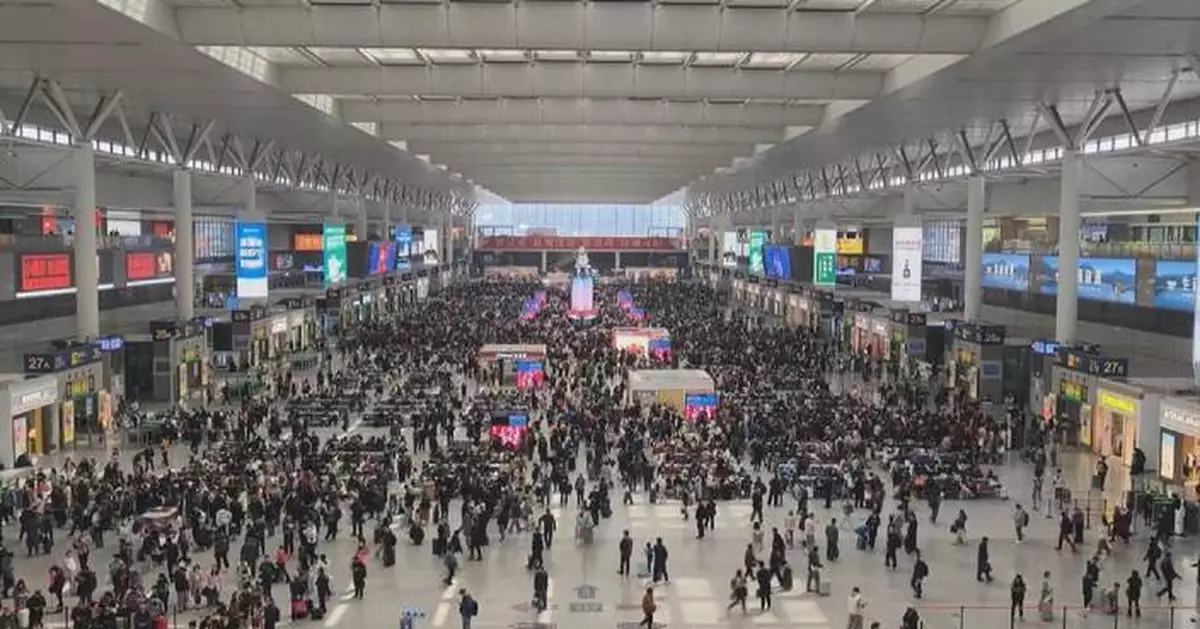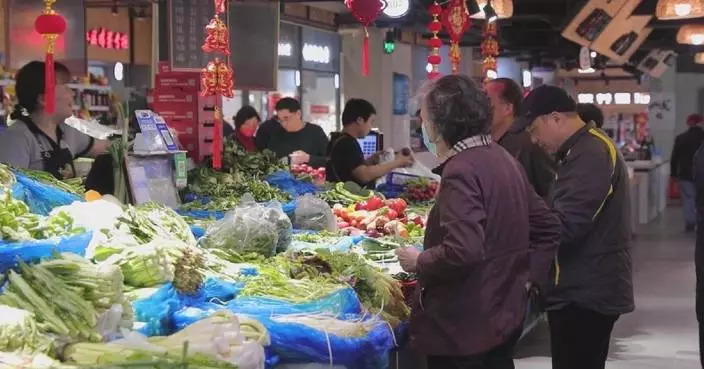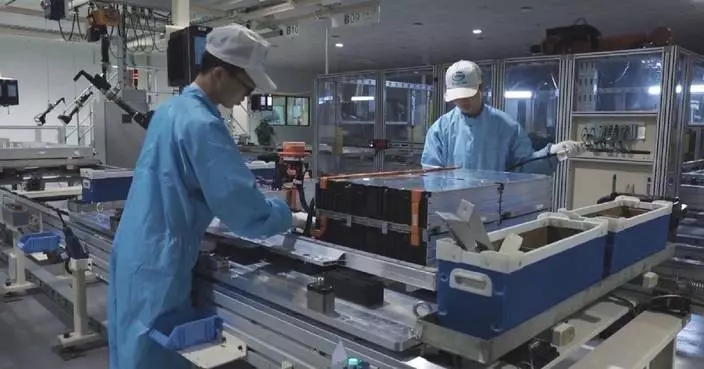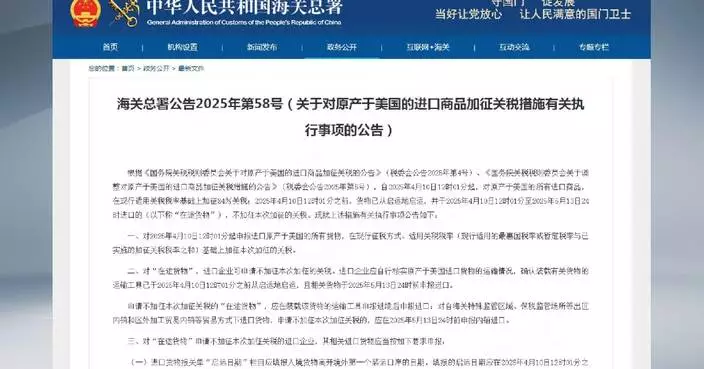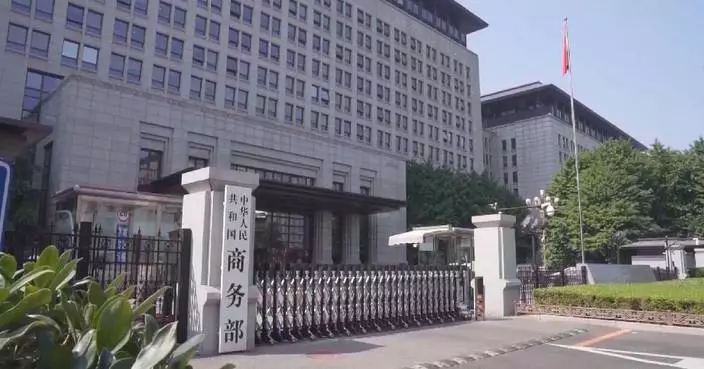China's transportation system including railway, highway and civil aviation has stepped up its services nationwide to cope with the increasing travel demand as the three-day Qingming Festival holiday is drawing to a close on Sunday.
The Qingming Festival, or Tomb-Sweeping Day, was the first day of a national three-day holiday. Traditionally a time during which Chinese people pay tribute to the dead and worship their ancestors, the Qingming holiday also provides a short break for Chinese residents to take spring outings or go sightseeing. This year, the festival fell on Friday.
The country's railway sector is expected to handle 20 million passenger trips on Sunday, facilitated by an additional 1,214 passenger trains, according to China State Railway Group.
The China Railway Beijing Group plans to send 1.5 million passenger trips, the Shanghai Group anticipates 4.1 million passenger trips, while the Guangzhou Group expects 2.6 million passenger trips, marking an increase of 12.9 percent year on year.
The railway sector has taken multiple measures to cope with the travel peak.
"To prevent passengers from missing their stops, we make special notes on the work machine for key passengers and add sticky notes with essential information as reminders," said Nie Yuxin, a train conductor of the Fuzhou passenger section under China Railway Nanchang Group.
China's highway system expects a travel peak starting 16:00 Sunday. Expressways across the country are estimated to see over 60 million vehicle trips on Sunday, with a significant portion of self-driving trips.
The civil aviation sector is also seeing a significant uptick, with the number of domestic air passenger trips projected to reach 2.1 million with 17,501 flights on Sunday.
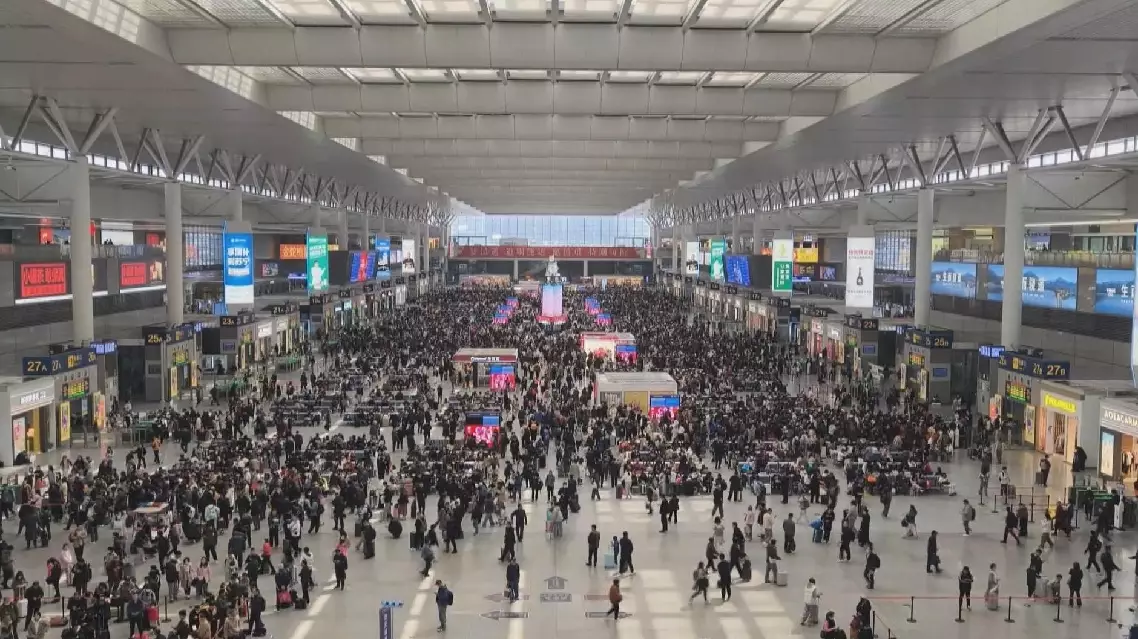
China sees return travel peak as Qingming Festival draws to close
European industrial leaders and exhibitors at the ongoing Bauma 2025 in Munich voiced mounting concerns over the latest U.S. tariff policies, warning that they could disrupt global supply chains and undermine strategic cooperation.
During the week-long world’s leading trade fair for construction machinery, many industrial insiders pointed out that the newly expanded tariffs encompass an extensive range of products and come with a sharp hike in rates, which are likely to disrupt market dynamics and supply chain resilience in the global engineering machinery industry.
Many analysts believe that the geopolitical considerations behind these policies have become increasingly prominent, further intensifying the strategic uncertainties that European enterprises face in the global market.
"I believe that these tariffs are not good for the market, because at the end it will be bad not only for Europe but also for the State in the long period. I believe that the market should be regulated by innovation, by a nice competition and with competition that is based on the technological race, not with an artificial thing that is coming in the market and is creating problem for all the Europe," said Claudio Ancetti, an Italian expert on construction machinery industry.
The United States market accounts for roughly 10 to 13 percent of Germany’s total exports in recent years, and is one of the largest single export markets for Germany's construction machinery industry. Therefore, the impact of changes in tariff policies on the entire industry is obvious.
Germany's mechanical engineering industry association VDMA has issued a warning, stating that the extensive punitive tariffs imposed by the Trump administration will cause serious damage on both sides of the Atlantic. Not only will they fail to solve the bilateral trade issues, but they will also trigger a spiral confrontation of mutual barriers.
Furthermore, the U.S. manufacturing industry, in several key technological fields, still highly relies on the supply of mechanical equipment from Europe, especially Germany. For decades, German and European machinery manufacturers have been important partners of the U.S. industrial system, but now, this cooperative chain is facing the risk of being artificially severed.
The damage will not only hit European exporters hard but also seriously impede the process of industrial transformation and upgrading in the United States itself.
"The U.S. tariff policies will certainly cause many destructive impacts. It's not a good thing for people. But we are not directly affected. The victims are the U.S. customers. They have to pay these tariffs and additional fees," said Andreas Diener, a German construction machinery supplier.
Industry insiders also noted that tariffs have shifted from being just a basic trade instrument to becoming an important variable in shaping corporate strategy within today’s highly interconnected global industrial chain.
In addition to calling on major economies to return to rationality and enhance multilateral coordination, the companies are attempting to find stable development anchor points amid the uncertainties of the geo-economic situation by accelerating the adjustment of supply chain layout and deepening cross-regional cooperation.
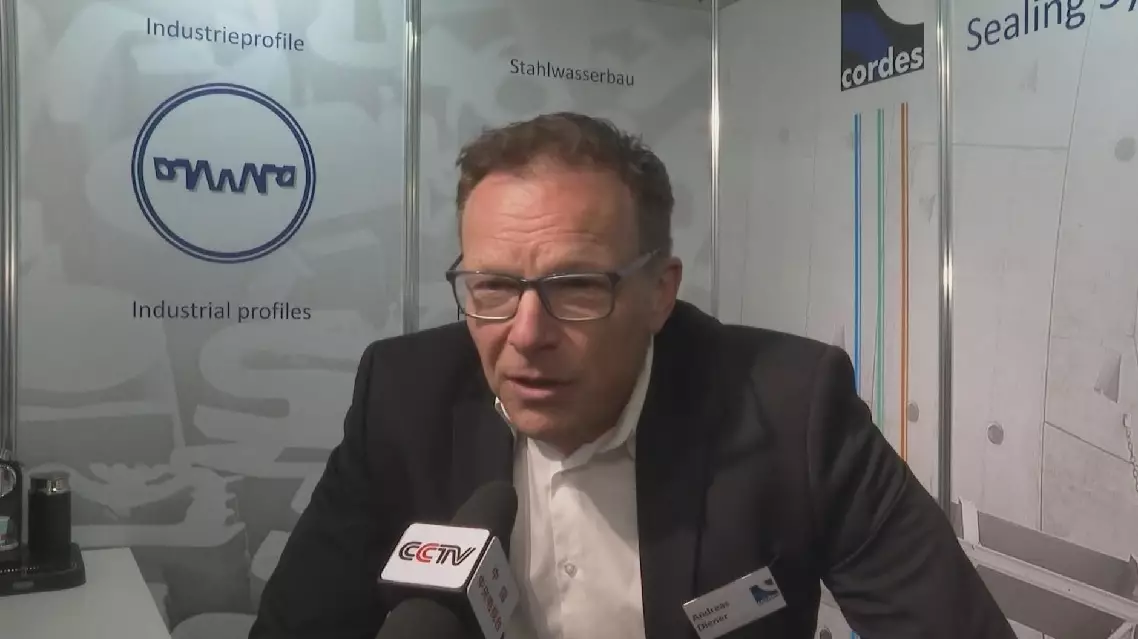
US tariffs threaten transatlantic supply chains: European industry insiders
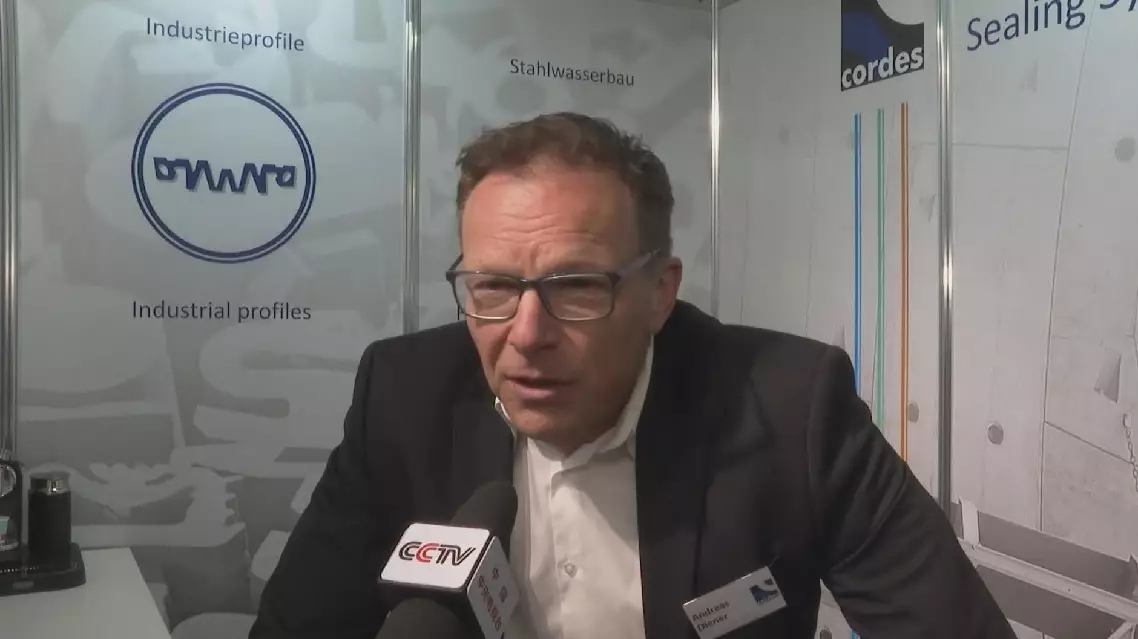
US tariffs threaten transatlantic supply chains: European industry insiders



